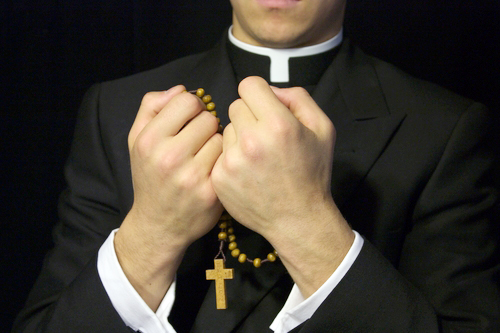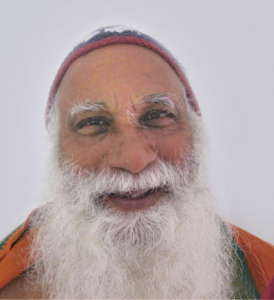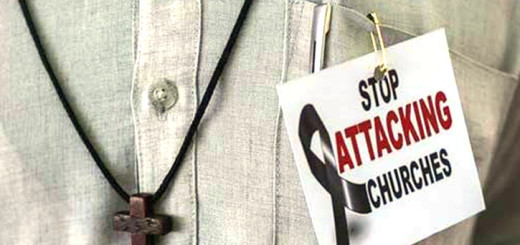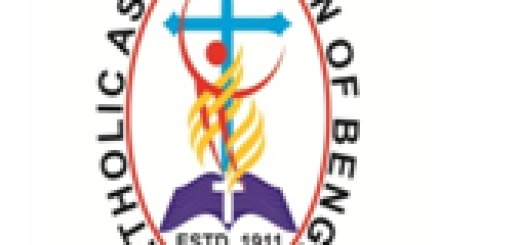Transition for Priests, Brothers, and Sisters leaving Official Priesthood and Institutional Religious Life

 Swami Snehananda Jyoti (Fr. John K. Thekkedam)
Swami Snehananda Jyoti (Fr. John K. Thekkedam)
February 8 – 2015
A national conference is scheduled on February 28, 2015, in Kochi, Kerala, to discuss transitioning of priests, brothers, and sisters leaving official or hierarchical priesthood or religious orders in the Catholic Church. I have avoided the word 'rehabilitation' generally used in medical settings to bring an individual from a sick condition to a state of wellness. Transition would best describe moving from one status or situation to another. As one who left the Jesuits in 1982 after 25 years of religious life, part of which also included nine years of very grace-filled and rewarding priestly life, I would like to briefly narrate my experience, and offer some theological, psychological, spiritual, and human rights reflections. I grew up in an ordinary, middle-class, Syro-Malabar Catholic family close to Pala. After the Secondary School Certificate (SSLC: 11 years) I joined the Jesuits in Gujarat to be a missionary. When I left the Jesuits I was a professor at Jnana Deep Vidyapeeth (JDV), Pune, training selected diocesan and religious priests. At the time of leaving my experience was that of a rising star unexpectedly falling from the firmament. My decision shocked and disappointed many even though I had carefully prepared a few chosen ones for my leaving. For the many I moved from grace to disgrace. They described my decision as disillusioned and misguided. A few years of difficult struggle within me and prayerful discernment prior to leaving paved the way for my firm conviction and affirmation that my leaving the Society of Jesus for the reasons I had at the time were more pleasing to God than staying in it by sacrificing those very same reasons. My personal preparation and grappling with issues that could face me in the world outside before leaving gave me courage and strength. In spite of many unforeseen and painful events, I never regretted my decision to leave.
When I joined the Jesuits in 1958, the prevailing climate was that one's vocation was the thing to be cherished most in life. Losing one's vocation was the worst thing that could happen as it was tantamount to falling from grace almost as the fallen angels. There was powerful social stigma. One was looked down upon by one's family and society. One lost one's standing in most Catholic settings. One was a social outcast. We had daily prayer for perseverance in the Society of Jesus. Nobody except the authorities concerned knew about a person's departure. It was shrouded in mystery. There was no bidding goodbye. The 'poor soul' who left deserved only to be pitied as the person's salvation was considered to be in danger. The person is deemed to have somehow squandered away God's grace. The disparaging expressions commonly used to describe such an individual in Kerala Catholic culture are 'jumping outside the wall' (mathilu chaaduka) and 'coming out of the habit' (uduppoori poruka). There was no financial provision for anyone's leaving almost as if that person did not deserve to live after leaving.
With the coming of the Second Vatican Council (1962-1965), things slowly began to change. There was a ray hope in the horizon. The old, medieval theology that micro-managed the Holy Spirit began to be discredited. The Church members started breathing some fresh air; a long-awaited freedom of God's children and, above all, a theology of hope dawned. More importantly, there was a climate of letting God run the universe rather than dogmas, encyclicals, and dictates from Vatican. With the new found freedom and primacy of one's conscience in place, exodus from priesthood and religious life began. Men like Pope John Paul II and his henchman, Cardinal Josef Ratzinger, (who succeeded Pope John Paul II as Pope Benedict XVI) tried to turn the clock back on the reforms of the Second Vatican Council. By canonizing Pope John Paul II in undue haste, the retrograde official Church magisterium (teaching authority) canonized the conservative church of power and control. So much so the Jesuit Cardinal, Carlo Martini, who was thought to be a probable candidate to succeed Pope John Paul II (he stayed out of running due to health reasons) stated in a historical interview given two weeks before death, but to be published only after his death, that the Catholic Church was two centuries behind times. The Kerala Catholic Church in my view is three centuries behind times. The Second Vatican Council supposed to initiate some substantive reforms in the Catholic Church was hijacked by authoritarian official powers for about 50 years. However, no earthly force can stem the Holy Spirit, and steer away from needed reforms forever. Here is our place to relentlessly and tirelessly work for reforms in the face of insurmountable obstacles. For myself, I chose to continue as a priest and minister to persons who need my services. Laicization would have been a big lie as I would have to declare that I did not have a vocation to priesthood. Of course each one has to be responsible for the consequences of one's decisions.
The individuals leaving traditional religious orders or diocesan priesthood after years of altruistic, committed, and dedicated service to God and humanity require whole-hearted approval of their decision to transition to another vocation or choice done after prayerful reflection and careful discernment. This choice needs to be honored, valued, and celebrated as their initial vocation was honored, valued, and celebrated. In one sense life is a dynamic, continuous transition from less to more adaptive and mature functioning. In another sense, persons do make choices with regard to their careers if and when more suitable and satisfying opportunities are available. All have a fundamental human right to make these choices or elections. No one needs anyone's approval to make these moral choices. All who believe in God has only one choice: to work for the Kingdom of God. Working for the Kingdom of God requires discerning and doing the will of God at all times. Doing the will of God invariably means serving God through service of humanity.
Before we delve into issues related to persons leaving organized religious life or priesthood, it is important to briefly look at theological and spiritual positions related to vocation and perpetual commitment, and, above all, to lifetime commitment to celibacy through perpetual vows. The myth that celibacy or virginity is a higher state than marriage was in vogue till the Second Vatican Council. It is still prevalent. The inability of persons to come to terms with sex and see sex as the most beautiful creative energy in the whole of creation is at the root of it. The history of Christianity shows a negative, guilt-ridden, and ambivalent attitude toward sex. Every state of life is the right state for the one who embraces it, and no state is higher or lower in itself. The only thing that one can commit oneself perpetually is to do God's will, and to work for the Kingdom of God in the light of the Gospels communicated to one's conscience. Therefore it is not right and good to make perpetual vows at one point in time for all times to come. A vow becomes perpetual only in the context of on-going discernment and ever-renewed commitment. What about life time vows or commitment to partners in marriage? In the present dispensation, I think, it is indispensable or at least the best option available in the context of bringing up children. Even St. Paul, the greatest formulator of Christian norms, allowed divorce when a non-believing partner came in the way of salvation or practicing one's faith. It is not right to have blind obedience to an authority. There is nothing wrong with obedience. We are obeying many laws in our practical life for the good of all. Good governance requires that we follow certain decisions made by certain elected representative as long as they do not go against moral values. Unquestionable surrendering of one's will to someone else is not recommended. On the other hand, as said before, one may surrender one's will to another out of an on-going discernment which is not at all difficult to practice. In a healthy and holy marriage spouses surrender to each other and obey each other out of love and commitment. In a believing community all are God's representatives, and leaders to whom obedience is pledged need to be elected after due prayer and discernment.
When religious life developed during medieval times, there was inadequate and often distorted understanding of human nature. At that time psychology was part of philosophy. The sun moved around the flat earth. The modern inventions in science and technology that revolutionized the world in modern times were unheard of. The Scholastic philosophy and theology that are still taught in priestly training were mostly systematized by St. Thomas Aquinas around Aristotelian concepts and world-view in the thirteenth century. The society was organized on the basis of feudalism, authoritarian monarchies, and autocratic rulers who oppressed the common man and woman. The Church preoccupied with the supernatural world jockeyed for temporary worldly powers, supremacy, and infallibility. It coexisted with the worst forms of tyranny, slavery, serfdom, racism and casteism, and colonialism. Historically it had very poor track record with regard to human rights. Concerned about the other world and after-life, the Church developed a negative theology of sex, resignation, and suffering, and gave great importance to asceticism in spirituality. Life was endured with so many famines, diseases, and pestilences, and not celebrated. This is unfortunately our past; and more unfortunately this past is still our present as medieval theology and spirituality still hold sway. It is in this context that we need to develop a theology and spirituality of religious life. If the great Thomas Aquinas, the greatest doctor of the Church, had the humility and courage to say toward the very end of his life that all he wrote seemed to him like straw (mihi videtur ut palea), we need to have the courage and honesty to stand for our convictions. Yet the Church glorified Thomas' teachings. I might say that I also had a good dose of Scholastic (Thomistic) philosophy and theology in my priestly training. To understand the hierarchical Church, it is important to note a few points from Thomas, the greatest doctor of the Church. Thomas justified the institution of slavery on the grounds of natural law. He thought unrepentant heretics should be excommunicated and put to death by kings who claimed their power from God. These were not the attitude of Christ who came to free the oppressed and the down-trodden. Even though the Second Vatican Council moved away from such teachings, certain mentality evocative of the medieval times still prevails.
It is important to understand the priestly training to understand the mentality of the leaders who underwent that training, and presently rule the Church. The autocratic authoritarian leaders underwent a priestly training modeled on medieval Scholastic theology not on the attitude of Christ and Christ's teachings in the Gospels. That is why the Bishops are not chosen for holiness, spiritual guidance, and discernment but for unquestionable loyalty and slavish submission to Rome and administrative ability. They are kept in line under the vow of obedience that they say is based on the obedience of Christ to God's will. The Church is fond of introducing unnecessary mediators to facilitate and ensure one's salvation as if Christ's all powerful mediation is not enough. No human including Mary, any saint, or any pope is entrusted with the task of mediation for another human who follows Christ's teachings.
The Church needs to embrace human rights and modern insights into human nature to develop a solid foundation for a positive spirituality and theology. Democracy with all its drawbacks is currently the best available form of governance, and the Church needs to come to terms with it. It certainly requires greater humility and greater faith in the Holy Spirit and the humanity that the Holy Spirit guides. It is interesting that the only place where democracy is practiced is in the election of popes. If democracy is good for the election of popes, it cannot be bad for the election of bishops and cardinals. The Church needs to relinquish universally discredited autocracy. It is sinful to practice autocracy under the guise of obedience. Autocracy is often intimidation and manipulation. It cannot be elevated and canonized by the recent trend of canonizing popes. Theology and spirituality need to keep abreast with physical and social science progress and insights, and guide them creatively in the spirit of the Gospels. The Church needs to condemn the consumer culture and the violation of human rights. The consumer culture destroys human values. The Church has to respect and practice human rights with everyone at all levels in the light of the values of the Kingdom of God. If the official Church preached and practiced these values, we may not have to have the February 28, 2015, meeting at Kochi to begin with.
For the coming meeting on February 28, 2015, I would like to propose some points for our prayerful reflection and discernment.
1. All persons of good will need to work on conscientizing against the stigma attached to leaving institutionalized priesthood or religious life. It is everyone's fundamental, therefore God-given, right to make decisions or change decisions already made without doing real harm to anyone after due prayerful reflection and discernment in accordance with one's conscience. Nobody should interfere with it. It is high time for the culture of stigma attached to leaving official priesthood or institutional religious life to change and disappear.
2. Bishops and religious superiors and persons who are working for needed reforms in the Catholic Church need to work together so those who leave hierarchical priesthood or religious life in a congregation can do so with honor, dignity, and adequate compensation if and when needed. All resources need to be mobilized for a smooth transition. A spirit of cooperation and not confrontation should always prevail. Benign confrontation arising out of tough love and purity of intention should be the last resort. A spirit of forgiveness and reconciliation expressing the attitude of Christ should be uppermost in our hearts and minds. Models of priestly and religious life that continue Christ's mission in the modern world and providing leadership need to be explored and experimented with. Inculturation in terms of incarnating Christ to native settings is essential.
3. Goals, needs, and wants of persons who leave need to be discreetly ascertained with respect and an empathic attitude. Impaired ministers need to be encouraged to receive psychological help with a view to rehabilitation.
















